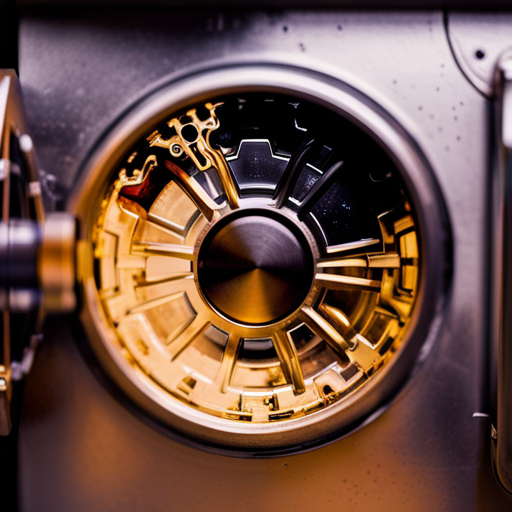Hard water is a common issue in many households, yet its impact on household appliances and plumbing systems is often overlooked. The presence of high levels of minerals, such as calcium and magnesium, in hard water can lead to the formation of scale that impairs the performance and efficiency of appliances like washing machines, dishwashers, water heaters, and toilets. Over time, this can cause significant plumbing issues that can be both costly and time-consuming to repair.
In this article, we will explore the negative effects of hard water on appliances and plumbing systems and discuss strategies to mitigate these effects. By understanding the impact of hard water on household appliances, homeowners can take proactive steps to prevent damage and extend the life of their appliances.
This article aims to provide a comprehensive overview of the issue and equip readers with the knowledge and tools necessary to address hard water woes in their homes.
Key Takeaways
– Hard water contains high concentrations of minerals that can build up in appliances and plumbing systems, impairing their performance and efficiency.
– Appliances like washing machines, dishwashers, water heaters, bathtubs, coffee makers, and toilets are commonly affected by scale buildup caused by hard water, reducing their lifespans and making cleaning tasks more difficult.
– Hard water can also be assaulting plumbing systems, causing pipes to clog and reducing water pressure throughout homes, affecting the operation of heating elements and moving parts in appliances.
– Strategies to mitigate the negative effects of hard water include using water softeners, descaling agents, performing regular maintenance, using vinegar solutions for some appliances, and engaging professional plumbing services for severe issues, which can help manage the effects of hard water effectively.
Minerals and Buildup
The high concentrations of minerals like calcium and magnesium present in hard water can accumulate in appliances over time, forming scale that can impair their performance and efficiency, as previously discussed.
As these minerals build up, they can restrict water flow, affect the operation of heating elements, and interfere with the effectiveness of cleaning products.
The effects of these mineral deposits can be seen in a range of appliances, including washing machines, dishwashers, water heaters, and toilets.
Removing minerals from hard water is essential to prevent the buildup of scale in appliances.
Water softeners and water conditioning systems are effective tools for this purpose, as they can remove minerals that make water hard and prevent scale buildup.
Additionally, descaling agents can remove existing scale in appliances, while regular maintenance and cleaning can prevent further buildup.
By implementing these prevention techniques, homeowners can extend the lifespan of their appliances and avoid the costly repairs associated with hard water damage.
Effects on Appliances
Impairment of appliance performance and efficiency is caused by the accumulation of minerals commonly found in water, particularly in hard water. When these minerals build up in appliances, they form scale that interferes with the proper functioning of the appliance. The decreased flow of water caused by scale buildup can affect the operation of heating elements, and make cleaning tasks more difficult due to interference with soaps and detergents.
Appliances commonly affected include washing machines, dishwashers, water heaters, bathtubs, coffee makers, and toilets. The normal lifespan of these appliances can also be significantly reduced when exposed to hard water. For instance, the normal lifespan of a washing machine is 11 years, but with hard water, it is only 7.7 years. Similarly, the normal lifespan of a dishwasher is 10 years, but with hard water, it is only 7 years. The normal lifespan of a toilet is 6.5 years, but with hard water, it is only 2 years.
Therefore, to ensure the proper functioning and longevity of appliances, it is crucial to mitigate the negative effects of hard water.
Mitigating Strategies
One effective way to manage the negative effects of mineral buildup in appliances and plumbing systems is to implement mitigation strategies. Water softeners and descaling agents are two popular methods used to combat the effects of hard water.
Water softeners work by removing minerals from the water through a process called ion exchange, replacing them with sodium ions. This prevents the formation of scale and reduces the negative impact on appliances and plumbing systems.
Descaling agents, on the other hand, are used to remove existing mineral buildup in appliances. These agents dissolve the mineral deposits, making it easier to clean and restore the appliance to its optimal performance. Regular use of descaling agents can help prolong the lifespan of appliances and prevent costly repairs.
By implementing these strategies, homeowners can effectively manage the negative effects of hard water and protect their appliances and plumbing systems from damage caused by mineral buildup.
Conclusion
In conclusion, hard water can have significant negative effects on appliances and plumbing systems. The high concentration of minerals in hard water can cause the formation of scale, which impairs the performance and efficiency of appliances such as washing machines, dishwashers, water heaters, and toilets. Over time, this can also lead to significant plumbing issues.
To mitigate the effects of hard water, various strategies can be employed. These include the use of water softeners, which remove the minerals that cause hardness, and the regular cleaning and maintenance of appliances. Additionally, the installation of water filtration systems can help to reduce the level of minerals in hard water.
By implementing these strategies, homeowners can protect their appliances and plumbing systems from the damaging effects of hard water and ensure their longevity and optimal performance.
